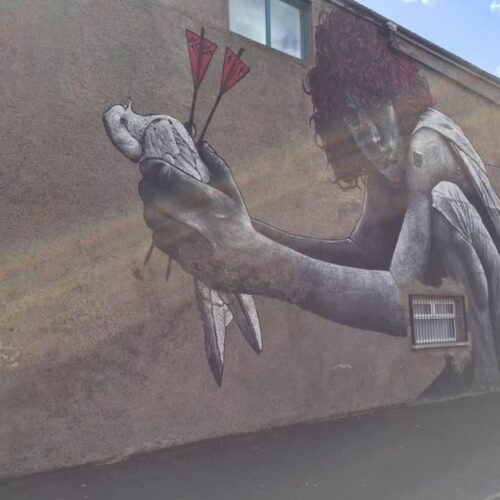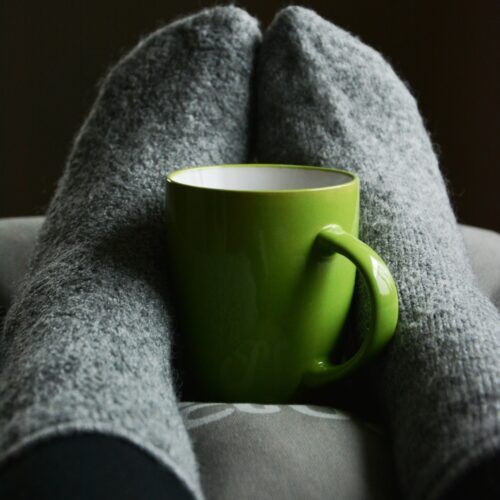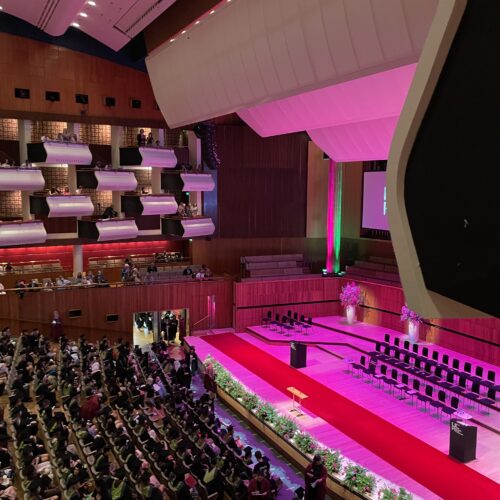
Equality doesn’t mean treating everyone the same
Like many, I’ve been reflecting on the recent protests following the killing of George Floyd, and the responses to the #BlackLiveMatter, in particular across Higher Education. These have ranged from the extremely thoughtful and sensitive to the very corporate and hollow. This has forced me to take a long hard look at myself and the organisation that I’m very proud to lead the Open College of the Arts and consider are we doing enough to live up to our values of diversity and inclusion?
Let me begin by saying that I grew up in Northern Ireland during the ‘troubles’. My father was a civil servant, and with a name like “William” (the cultural reference is King William of Orange and his role in the Battle of the Boyne) in such a divided community at that time I found myself on the receiving end of prejudice and bigotry, and at one point being beaten for being in a place where different ‘tribes’ mixed. I always had friends from both sides of the divide and also from different cultures, and colours. My mum once joked that I didn’t mention my friend was Black, to me it wasn’t important, but that’s probably easier to say when you are young and White. Culture is important, but so is multiculturalism and inclusion.
Attending Uni at Queens University Belfast during the troubles shaped me, and made my beliefs in working across boundaries stronger than ever. I was part of several community exchange programmes which worked together to improve community centres on both sides of the divide in Belfast and I enjoyed hearing the different perspectives and experiences.
I left Northern Ireland when Clinton was starting to broker peace but before the good Friday agreement was signed. I went back several years ago and witnessed the progress that has been made. This progress is not down to the politicians but to the people who helped to shape their future and work together to build something better. They chose to turn from violence, some of them from paramilitary organisations, and to change.
Fast forward to today and the killing of George Floyd. I cannot believe that so little has changed for those communities when so much progress has been made in other areas. I see progress in recognising LGBTQ+ rights, improving accessibility for those less abled and in rights for women and for non binary people. There is still more work to do on those fronts too but race seems to still be a defining issue above others and that saddens me.
The Coronavirus pandemic has also made me appreciate that people and organisations make the difference, not governments. A simple example is the decision by the Premier League and FA to suspend football in the weekend before lockdown. Nothing had come from government about closing but people with responsibility made the decisions to take action and support their communities and fans through putting social justice before profit. I shudder to think how much worse it might have been without that intervention. This and many other similar gestures putting society before self give me hope.
The Open College of the Arts has a commitment to diversity and inclusion, and we set targets for students from different backgrounds, from deprived areas, from prisons, people who have a form of disability, people who suffer with poor mental health or anxiety and a host of other groups and types. A third of OCA students have those ‘protected characteristics’.
I was very proud to meet Mary-Joyce Davies. Mary-Joyce graduated last year from the Open College of the Arts and her work was, and still is, stunning. I have watched her career develop since graduating https://www.oca.ac.uk/weareoca/alumni/oca-alumna-mary-joyce-davis/ Mary-Joyce has used her identity, coming from Mauritius, and brought out the best expressions of her culture through in her work. She and I share a common past as we both have that connection to Northern Ireland. https://www.oca.ac.uk/Showcase/maryjoyce/
But the progress we have collectively made is not enough. We can and should do more. Equality doesn’t mean treating everyone the same, rather it means giving everyone the opportunity to succeed and to make the playing field level. Those who are the first in their family to study in higher education are more likely to struggle so we must do more to help them. We must have multicultural representation on our Boards. We must decolonise the curriculum but we must also use our alumni and students to help us learn what they need and to adapt to support them. I see these improvements in the same way I see accessibility, i.e. making learning more accessible improves the experience for everyone, not just those with recognised disabilities. We must recruit for diversity and embrace different views.
I believe that education can make a difference. I believe that we should all strive to be everyone’s equal and no-one’s superior.
Art is such a very powerful mechanism for social change. I saw this when I returned to Ireland and went on the Belfast Graffiti tour which I highly recommend. (image “Son of Protagoras” Mural by MTO in Belfast, Northern Ireland)

The art has divided, provoked, inspired and joined communities in a way that has left a lasting legacy on the city. In the same vein the pulling down of the slave trader Edward Colston’s statue in Bristol this weekend during the #BlackLivesMatter protest has left a lasting legacy. The videos and imagery of the statue being pulled down, pitched and tumbling into the ocean have an extremely powerful resonance across the national consciousness. Art should provoke.
I am planning to launch a scholarship fund to encourage young Black and minority ethnic writers. Through art we can make sense of the world. Through art we can change perceptions. Through art we can expose inequality and division. Through art we can enact change.
I would love to hear your story.
|
|







Brilliantly put Will and thank for your honesty. Being from an Asian family and coming back to England in the UK in the 80’s, I’ve faced many contesting opinions and fights. But one thing that let me have my voice was art and you’re right. It’s such a channel to say ‘it’ when we can’t say it verbally.
Thank you Diana. I agree with you. Your background and how you have found success despite adversity (or because of it) means you are also a fantastic role model for the next generation of artists.
I am white and middle aged, but I came from an extremely poor background and a large family. I was beaten up everyday at school because I was the tallest and I was different. I had always been taught that everyone was equal, and I believed and I still do,. However my vision of equality, I believe was flawed in that it meant treating everyone exactly the same. It’s only as I have matured that I have learned differently. I loved each of my 4 children equally, but they were all different and had to be treated differently, thus it must be the same in society. Art is a great way to express this.
I think that’s a really nice way of explaining it. I also have four children and they are very different and I’m still learning how to support them well. What motivated the first three, doesn’t work for my youngest. I’m very conscious that each one sees the world differently.
A great read, thanks Will.
I also believe that everyone should be given the opportunity to succeed, being accepted for a student loan has given me the chance to live my dream (I’m now in my late 40’s) and for the last year studying a subject I’ve loved and lived for many years has given me more than I could ever dream of. Art is definitely the most powerful tool for social change, you planning to launch a scholarship fund to encourage young Black and minority ethnic writers is a fantastic idea.
Thanks Tracy that’s great to hear, good luck with your studies.
Thanks for a really well-balanced and informative post Will. The NI perspective shows that it can happen to any one of us, it’s largely a matter of context. If I go to NI I won’t necessarily be seen as me, I’d be defined by being English, & (originally) protestant. All it takes is a ferry trip. I was at a symposium a few years ago about equality in photography: so called ‘positive discrimnation’ was suggested, to even the odds to statistical equality (treat everyone the same and be seen to do so). Then someone from NI stood up. She said it was tried there and seen to be tokenism, ‘adding a face at the party to show others that you care’. Everyone saw straight through it and could tell it wasn’t the answer. Creating avenues for voices to be heard and listened to, shaping those avenues so that those people have the same opportunity to advance ideas and influence as others is the way I’d describe a better alternative. BTW M T A Brown’s comparison to treating children is a good one – you may love them equally, but treating them all the same isn’t going to be a solution as they’re not the same.
Hi Derek, yes I remember the cases of positive discrimination in the workforce growing up. I met someone on the receiving end of it who lost their job at Short Aerospace. It was definitely not the right solution and cause bitterness and great division. I had a lot of English friends at Uni and QUB was very multicultural in nature and had students from poor and rich backgrounds mixing together so places of learning did help to create spaces for tolerance and listening.
Thank-you and yes….. ‘We can and should do more’…much more !
Cultural diversity should be embraced by all as it is a wealth of knowledge that will and can only make us better people as individuals or a nation.if I am the person I am today, it is because I have taken the best out of Africa where I grew up, Ireland and England where I spent my early twenties , the Middle East where I lived for sixteen years therafter and Northern Ireland for the last seven years .The best thing we can do for each other ( as different races /cultures) is to educate ourselves of our differences and similarities to strengthen our bond.
I agree with you Mary-Joyce. I was lucky enough to get to visit France when I was a teenager. I worked there for six months and got embedded in that culture. I then worked for an EU research team for a few years and spent a lot of time in different countries across the world and through that I got to experience so much beauty. Education is critical.
Thank you Will for writing the post from a personal perspective. The more we learn about each other, the more we can understand and comprehend how everyone experiences the world differently. As a couple of others have mentioned, art is such a powerful communicator and allows (and needs to actively encourage) diverse voices.
Your article resonated with me, Will, thank you. I was thinking about your point on those who have forged a path in the face of adversity. My cultural heritage on my Mothers side is from Persia and my family name, Irani means literally ‘from Iran’, in effect a label given to Zoroastrians that were persecuted and settled in India. My Grandfather came to this country with nothing in 1932, and I recognise the significant achievements he made that have paved the way for me. You’re right, progress and equality are part of an evolving process, and I hope that in some small way I am doing my part to build on this.
Hi Doug, that’s an interesting family background. I’ve been watching the TV series on the Art of Persia on BBC4 and I find the whole culture fascinating. The more we can learn and understand about different cultures the more we evolve. Together we can build a more culturally aware and relevant curriculum.